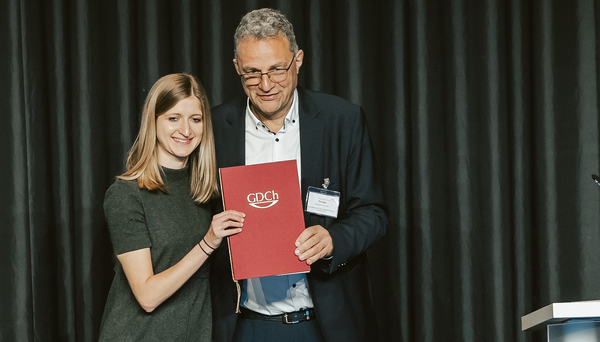News Detail
Prize-winning thesis: oxidation done properly!
July 17, 2024 |
"This work is a milestone along the road to advancing our understanding of the role of dissolved organic matter in oxidative water treatment," stated Joanna Houska's supervisor, Urs von Gunten, who is a professor at EPFL and head of the Drinking Water Chemistry Group at Eawag. According to von Gunten, Houska possesses "a remarkable ability to tackle complex scientific questions both theoretically and experimentally, successfully resolving issues with great independence.” Her experiments and modelling have produced and interpreted exciting new data, offering insights that can be employed to improve oxidative water treatment methods.
Inefficient and hazardous without accurate analysis
What is the underlying issue? When chlorine or ozone are used for water disinfection/oxidation, the primary goal is to render pathogens and micro-pollutants harmless. However, a substantial proportion of the oxidants reacts with water matrix components such as dissolved organic materials. This not only reduces the efficiency of the treatment process, but, in the worst-case scenario, can also lead to the formation of toxic by-products. For efficient oxidation, it is therefore crucial to have a precise understanding of the dissolved substances in the water being treated. Traditional approaches have hitherto relied mainly on aggregate parameters derived, for example, from UV absorption. However, Houska addressed this gap in her thesis, firstly developing methods to measure the concentrations of relevant compounds, and then characterising and evaluating the compounds as to whether and to what extent they could form problematic by-products. Lastly, she revealed insights into oxygen isotopes in hydrogen peroxide, demonstrating how the problematic precursor substances can be distinguished from one another. Notably, in her research, Houska went beyond the disinfection/oxidation of drinking water to also investigate the formation of ozone by-products at a wastewater treatment plant and their subsequent degradation in biological post-treatment of treated wastewater.
A first for Switzerland
The doctoral prize in the field of water chemistry has been awarded every year since 1992, and carries with it EUR 1,500. 2024 sees it being awarded for the first time in Switzerland. Joanna Houska already knows how she will use the prize money: "My bicycle urgently needs an upgrade, so the prize money will likely be invested in that.” She currently works in the environmental department at Roche, in the area of wastewater and water protection.
Cover picture: Joanna Houska at the award ceremony with Prof. Thomas Ternes, at the Annual Meeting of the German Water Chemistry Society in Limburg (photo: Nina Hermes, BfG).

